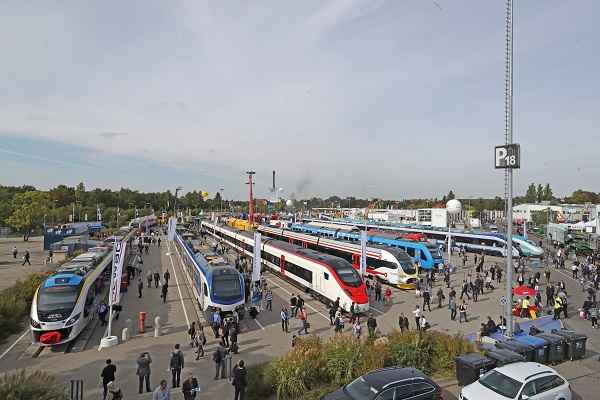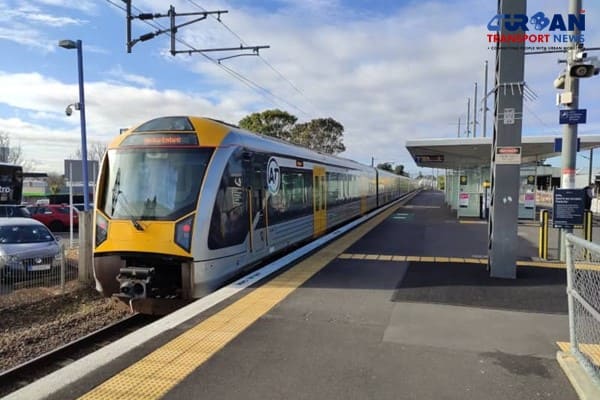SATEBA acquires Rail Business of De Bonte Group in Belgium
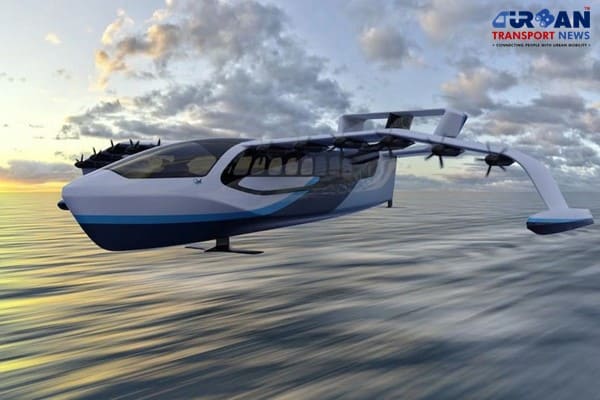 Regent to launch High-Speed Seagliders to transform coastal transportation in UAE
Regent to launch High-Speed Seagliders to transform coastal transportation in UAE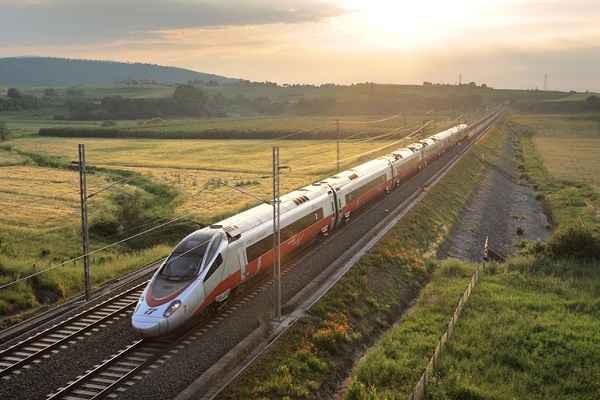 California commences construction on $12bn Los Angeles - Vegas High Speed Rail Project
California commences construction on $12bn Los Angeles - Vegas High Speed Rail Project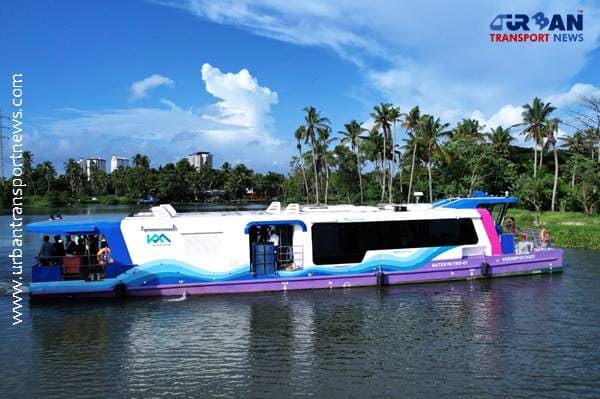 Kochi Water Metro floats tender to procure 15 more electric-hybrid ferries
Kochi Water Metro floats tender to procure 15 more electric-hybrid ferries Siemens Mobility-Hassan Allam Construction JV Sign Contract for UAE – Oman Railway Link
Siemens Mobility-Hassan Allam Construction JV Sign Contract for UAE – Oman Railway Link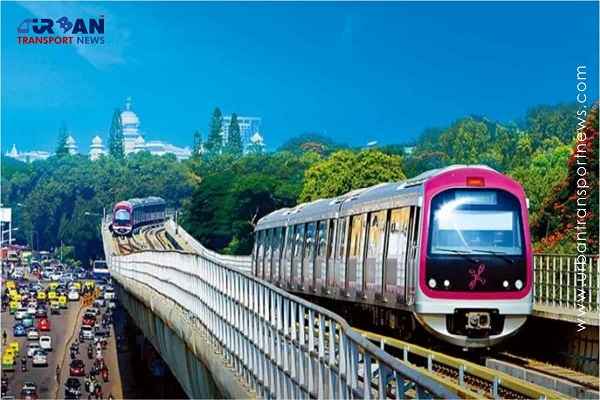 What is better public transport option for Bengaluru - RRTS or Metro Expansion?
What is better public transport option for Bengaluru - RRTS or Metro Expansion?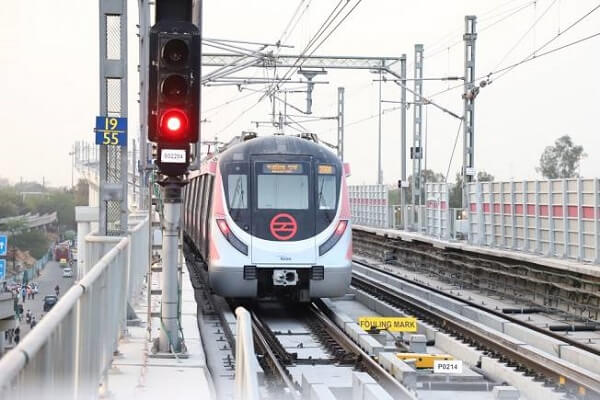 Behind Closed Doors: Corruption Uncovered in Delhi Metro's Top Management
Behind Closed Doors: Corruption Uncovered in Delhi Metro's Top Management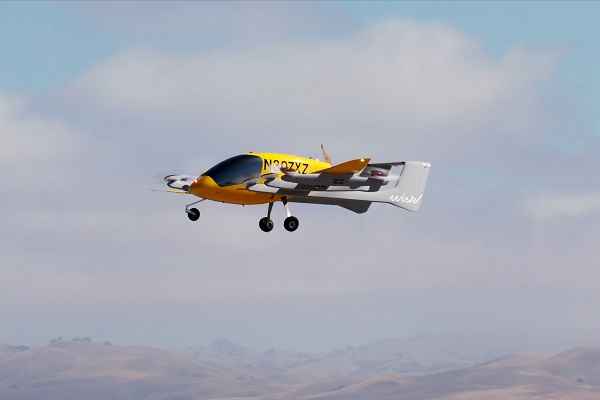 IndiGo to launch Urban Electric Air Taxis between Delhi to Gurugram
IndiGo to launch Urban Electric Air Taxis between Delhi to Gurugram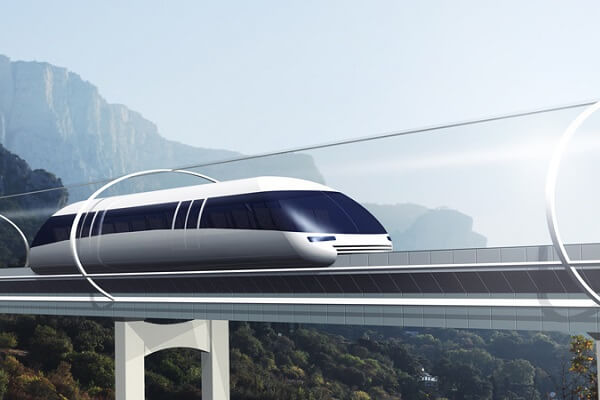 Swisspod secures Strategic Investment to advance the Hyperloop Transportation
Swisspod secures Strategic Investment to advance the Hyperloop Transportation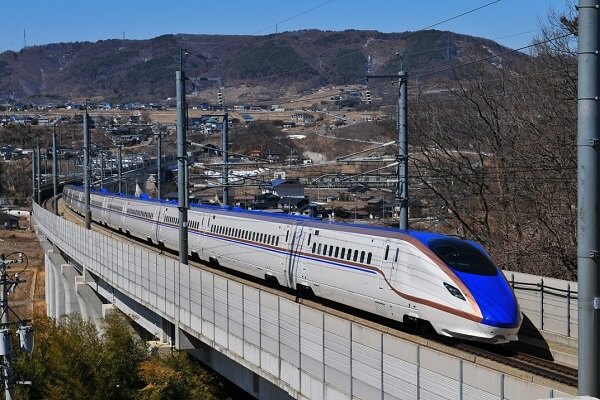 Siemens Mobility revolutionizes Copenhagen's S-bane Network with Driverless Technology
Siemens Mobility revolutionizes Copenhagen's S-bane Network with Driverless Technology
Exclusive interview with Rajesh Prasad, Director-Operations, Rail Vikas Nigam Ltd (RVNL)
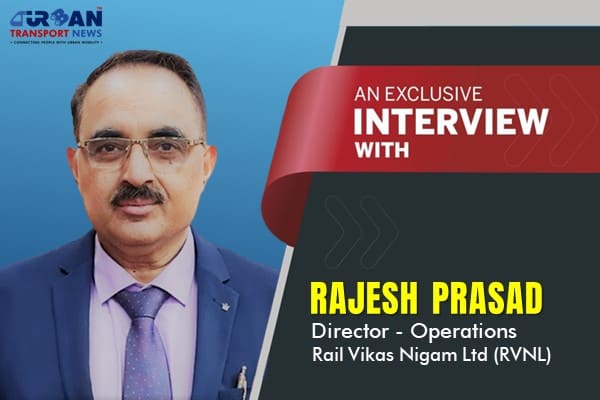
Shri Rajesh Prasad, a seasoned professional, boasts a robust academic background and an extensive career in Civil Engineering. Graduating from India's premier engineering institution, the Indian Institute of Technology (IIT) Kanpur, in 1987, he went on to refine his expertise with a Master's degree in Civil Engineering from the same institute.
In 1988, he embarked on a transformative journey with the prestigious Indian Railway Service of Engineers (IRSE), sparking a 34-year commitment to railway and infrastructure development. Throughout his career, he has embraced diverse roles, enriching his knowledge and honing his skills.
His professional journey encompasses various industry facets: operations and maintenance, construction, bridge design, general administration, and the swift execution of turnkey projects. This holistic exposure has enabled him to adeptly navigate the complex challenges and opportunities within rail infrastructure.
With a robust foundation in academia and practical experience, he consistently showcases his ability to contribute to rail sector development. Looking ahead, he remains dedicated to leveraging his extensive knowledge and experience to shape the rail industry's future and make impactful contributions to Civil Engineering.
In a recent interaction with Urban Transport News, he candidly discussed RVNL's success story and the strategies propelling its ongoing ascent.
Kindly brief us about your professional journey in the Railway industry?
I am a graduate in Civil Engineering form IIT/Kanpur in 1987. I also did M. Tech degree from IIT/Kanpur and then joined the prestigious Indian Railway Service of Engineers in 1988 Exam batch. I have put in about 34 years of service in Railways and RVNL, in various capacities in operations & maintenance, construction, bridge design, general administration and fast track implementation of turnkey projects, marketing and business development.
I was fortunate to receive “Service Medal” and “Certificate of Merit” from Railway Minister for outstanding work for the year 2008-09. I was also given the Railway Minister’s Award for the best project in the Advanced Management Programme 2005-06. I was singularly lucky to receive “Certificate of Merits” and “Service Medals” 4 (four) times for the meritorious works for the year 1995-96, 1996-97, 2002-03, 2007-08. I have to my credit 25 technical papers which I have authored and presented in various forums. I feel happy and privileged to be part of the great Indian Railway family.
Choosing a career in the engineering domain is pivotal. What sparked your interest to go into engineering, especially in Railways?
Engineering is the science that has been key to growth of human civilization and progress. I have always found Engineering a fascinating subject that challenges one’s mental resources and imagination. Indian Railways is an epitome of engineering marvel, and so when I got selected for the Engineering Department of Indian Railways-the prestigious service of IRSE, I considered myself very fortunate and looked forward to a career which promised to provide huge challenges and opportunities both in technical and managerial fields. Learning from the story of starfish, I really wanted to make contribution to the immense railway system of India.
As the Director of Operations at RVNL, could you provide an overview of your role and responsibilities in driving the development of rail infrastructure projects across India?
As a Director of the Company, my role is to think big for the Company, to build the teams and processes that can manifest the big dreams into reality, to explore all the opportunities in the market and to create the necessary synergy amongst the stakeholders, technology partners and the employees to realise the goals that we set together. I have tried to constantly upgrade the systems and processes within the Company leading to RVNL transforming itself from a Local Railway Infra Company to a Global All Infra Company. In a short span of three and a half years, RVNL has won record number of contracts in the open market, started its first off-shore project in Maldives and has struck large no. of MoUs with many organisations within the country and outside.
With the Union Finance Ministry's recent approval for the upgradation of Rail Vikas Nigam Limited (RVNL) to a Navratna Central Public Sector Enterprise (CPSE) from Category-I Miniratna. Could you highlight some of the most recent and noteworthy developments within RVNL that have significantly contributed to the advancement of rail infrastructure in India?
Winning Navaratna status from Govt. of India is a recognition of RVNL’s consistent spectacular performance year after year. Since RVNL was the executive arm of Indian Railways for its fast track projects, a large part of RVNL’s success as an infrastructure company lies in completing and commissioning many important Railway projects. So far, RVNL has delivered 140 nos. of Railway projects to Indian Railways. All these projects were executed on turnkey basis, from the estimate preparation to commissioning, what we call from conception to commissioning. RVNL has been involved in completing project life-cycle i.e. from concept to commissioning. It has got the efficiency of private sector and authority compounded with trustworthiness of public sector. The most important developments within RVNL was its company’s philosophy which believes in constantly upgrading itself to the latest in technology in engineering, information technology and in management processes. This led to great synergy within the company and the results were the outcome of such internal transformation. The best of this culture was in its full form during the Covid pandemic, when RVNL continued its operation and execution of projects, while maintaining an empathy for our partners and employees and creating the necessary system of extending assistance to each other to enable each employee within RVNL and within our partners to do their best.
As RVNL continues to make strides in India's railway sector, could you shed light on any efforts or aspirations the company has in terms of expanding its presence or collaborating on rail projects beyond national borders, thus contributing to global rail development?
As mentioned earlier, in the last two and half years, RVNL has taken steps for transforming itself from a Local Railway infra company to a Global Infra company. A major breakthrough during 2022 is RVNL’s successful entry into international business. We have bagged our first offshore order to the tune of Rs.1500 cr for development of a port and construction of allied infrastructure in Maldives. RVNL has also pre-qualified and participated in the Project for Development of Sports Infrastructure in Maldives financed under EXIM Bank’s Govt. of India supported Line of Credit (LOC) scheme.
Further, RVNL has formed a Joint Venture Company with Kyrgyz industry- Open Stock Company to construct rail road and other infrastructure projects in Kyrgyz Republic. This strategic alliance has the potential to bring huge contracts in rail infrastructure projects in Kyrgyz Republic and open another front for RVNL in overseas market.
RVNL also held discussion for execution of a no. of projects in a few other countries as well, both at the Govt. level as well as through strategic tie up and collaboration with local agencies. In short, we are very excited about opportunities abroad and taking all possible steps to make sure that we are ready to participate in all future tenders within and outside the country.
Can you share some success stories or noteworthy achievements of RVNL in recent years that highlight the company's impact on enhancing India's rail infrastructure and transportation network?
Some of the iconic structures of Indian Railways have been built by RVNL, such as the 4.62 km long Vallarpadam Rail Bridge in Kerala, the then longest railway bridge in India, the Cable-stay road-over-rail bridge at Baraddhaman in West Bengal, The New Pamban Bridge, which RVNL is constructing, is India’s First Railway Sea Bridge with vertical lift and is a landmark engineering marvel in the making. To facilitate the movement of ships across the railway bridge, navigational span can be lifted up to a height of 17 m by using electro-mechanical system and thereby, it provides an overall draft of 22m. The Air Draft (vertical clearance) in the lifted position of the navigational span will be equal to the vertical clearance available in the adjacent High Level Road-Bridge, which will in turn, facilitate the movement of bigger ships. The new upcoming bridge will be a boon for devotees and pilgrims who wish to embark on a spiritual journey to Rameswaram and Dhanushkodi as well as tourists and other commuters.
Can you please share your perspective on the ongoing practice of procuring railway and metro coaches from foreign countries, despite India's rich railway history and the availability of a significant number of domestic manufacturing facilities?
One of the key strength of the company has been flexibility and diversity. The three keys which have been unlocking the excellence in RVNL are the will to win, the desire to success and the urge to reach the full potential. RVNL has been able to complete and commission 17 turnkey projects all over the country for production and maintenance of coaches, wagons, locomotive and thus reinforces the efforts of Indian Railways for ‘Atmanirbhar Bharat’. Under this scheme, we had constructed Latur workshop and a coach for trial purpose was also manufactured. The idea behind this background is to appreciate the way forward of manufacturing of Indian Railway Coaches including Vande Bharat. So, in time to come, we can see the very large no. of indigenous coaches running in IR and Metro systems in India.
Have you encountered a particular failure that you found especially disheartening? If so, could you elaborate on how you approached and managed the situation to overcome it?
We in RVNL believe that success and failures are part of games in business procurement, and therefore, all such events should be taken in our stride. We learn from failures and we sharpen our strengths from every success. Our motto is to make all out efforts to procure business by being competitive in our technical and financial offers. There have been cases where despite our best efforts, we could not succeed in procuring some projects. However, where we fail due to any incorrect evaluations in terms of the tender documents, we do not hesitate to agitate before the concerned authorities with documents, rules and procedures. In some cases, we have succeeded in re-evaluation. However, the most disheartening case of failure was in one offshore project where despite our best technical offer and a competitive financial offer, in which we believe we were the most eligible, RVNL was not declared as preferred proponent. We had invested lot of our technical and managerial resources for the tender, and therefore, the non-selection has hurt us badly. We have, of course, given our representations to all concerned.
You have been with the Rail & Metro sectors for many years. What’s kept you there and in the industry? What is your message to next-generation engineers on this National Engineers Day?
Railway infrastructure is the mainstay in the goods and transport across the globe in most countries. Its reach and speed is enlarging manifold with each passing date, and being the most environment friendly transport, its significance is on the rise in every country including India. Many developing countries with limited rail infrastructure are looking forward to railway infra companies to help them establish and modernize their railway system. RVNL has the necessary skill set and competence, developed over the last two decades and many project delivery in its repository of credentials to provide its services in all such projects all over the world. Similarly, Metro rail system is acknowledged as the panacea for the complex urban transportation issues all over the world including India. RVNL is presently implementing Metro Projects in six cities across the country belonging to State Governments apart from two Metro Projects of Indian Railways. We see great future in this domain and we are keeping our system in readiness to participate in all Metro Project tender on the basis of our strength in technical capacities and competitive financial offers.
We see great future in this (Rail & Metro infrastructure) domain and we are keeping our system in readiness to participate in all Metro Project tender on the basis of our strength in technical capacities and competitive financial offers.
Message for the next generation would be that the infrastructures which we are creating today are designed for 100 years plus. So, let us be the bridge to the next to next generation. Keep the things simple, work with passion and always try to lead following the shloka #21 of Chapter 3 of Geeta which says:-
Whatever actions great person perform, common people follow. Whatever standards they set, all the world pursues.
We would greatly value your insights on our publications, Metro Rail Today and Urban Transport Infrastructure. How do you perceive the contributions of these publications in the domain of urban transportation and infrastructure?
I believe technical journals ‘Metro Rail Today’ and ‘Urban Transport Infrastructure’ play a great role in bringing technical minds on one platform and in exchange of views and technical knowledge and of sharing of experiences. I congratulate the publications for the critical roles they are playing in these areas and helping in disseminating knowledge.
Is there anything specific you would like to convey or share with our esteemed readers?
There is an exploding abundance of opportunities in the infrastructure domain in the country with Government’s aggressive commitment to clear all infrastructural backlogs and build a future-ready Atmanirbhar Bharat. Presently the logistic cost in India is 15-16% of the economy and the logistic market in India is more than 200 billion$. Govt. has come out with a Logistic Policy, 2022 and National Rail Plan. The focus of the Govt. is to reduce the modal share of freight carried by road from 45% to 26%.
Metro construction in Tier-I, II cities and suburban semi-high-speed networks are required to have efficient mobility with lesser carbon emission. So, in Railway infrastructure including Metro Railway infrastructure, there is a very promising and challenging future ahead. What is exciting is that many State Governments are coming forward to invest and have signed MOUs with Ministry of Railways for setting up of SPVs for developing Railway lines in their States, thereby supplementing the efforts of Ministry of Railways. This expands the opportunities for investors and infrastructure companies to join in this efforts of development of the railway infrastructure. This is going to be a win-win situation to all concerned. In short, there is huge potential in this domain and therefore, our focus should be on constantly updating technical strength and financial capacities to take advantage of this booming opportunities.





